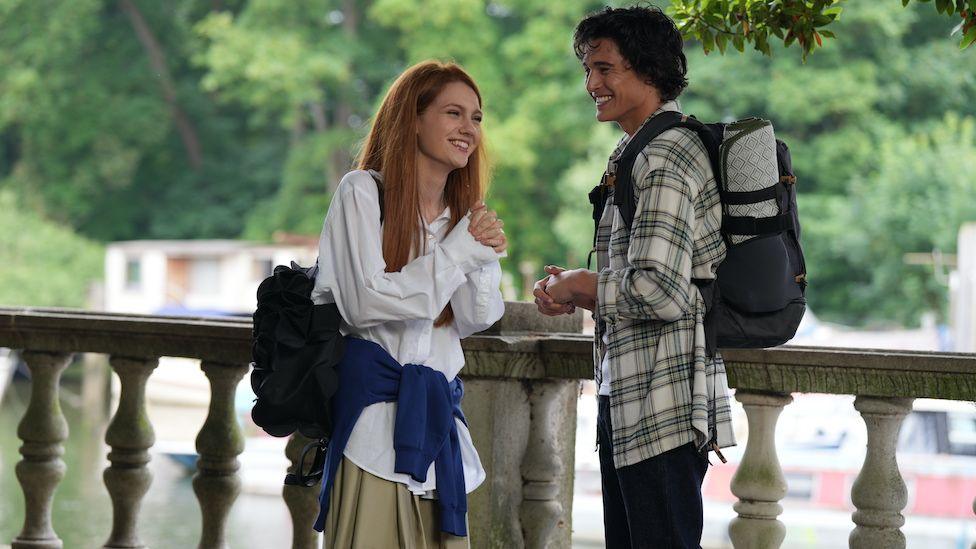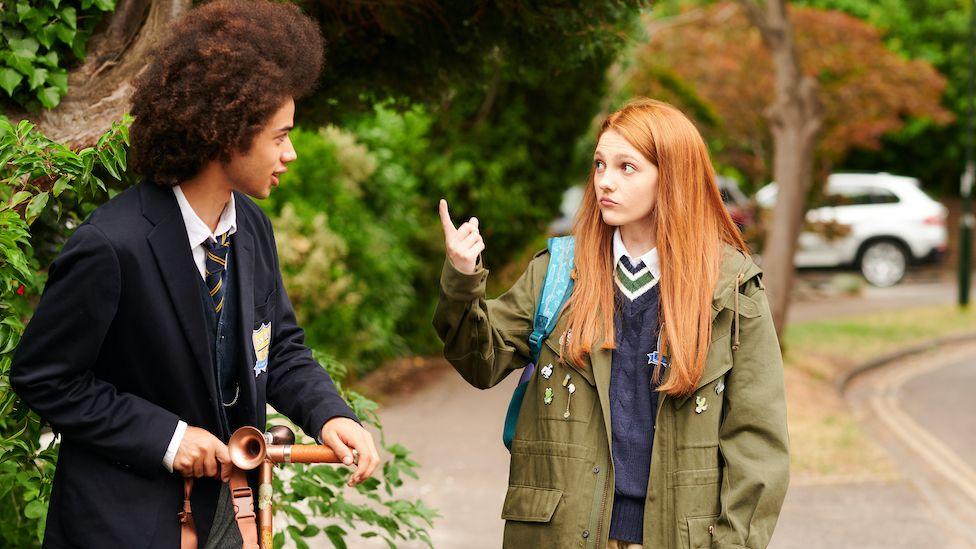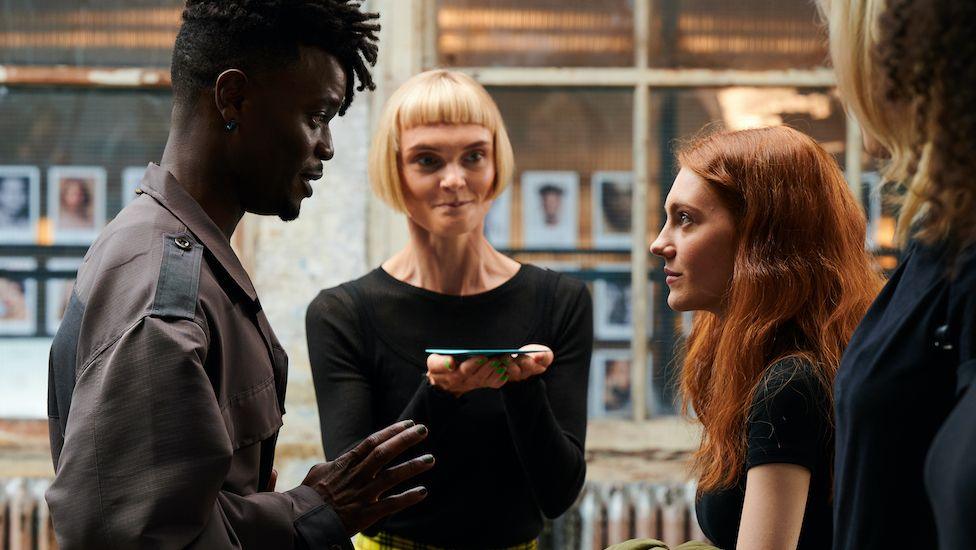Geek Girl: The teen drama tackling neurodiversity

Emily Carey as Harriet Manners with her love interest Nick Park, played by Liam Woodrum
- Published
Many of us would love to play our favourite book character in a film or on TV - but Emily Carey has managed to live the dream.
The 21-year-old is the star of teen drama Geek Girl, an adaptation of the book series of which she was a "huge fan" growing up.
"I loved these books, I think I read the first one when I was about 10 or 11," she tells the BBC.
Carey plays Harriet Manners, a high-flying secondary school student who is targeted by bullies, but by accident becomes a supermodel.
She says she felt "so seen" in the lead character.
'Teens are allowed to be imperfect'
The book is based on the real-life story of its author, Holly Smale, who says seeing her book adapted for the small screen has been "an amazing experience".
"I've had this dream for a long time, but you always worry that it's not going to quite meet your expectations," she says.
The novel, first published in 2013, has been turned into a 10-part series by Netflix, although it is not yet known whether the other five books in the series will also be adapted.
Smale said it was a deliberate choice to make the show feel distinctive from other teen dramas, as it tries to reflect their lived experience rather than a glossy TV version of it.
"We're all flawed in multiple ways and for me, regardless of what character I'm writing, it's really important to show people react in ways they regret later or say things they wish they hadn't said," Smale says.
"That's human and it's really important for teens to know they're allowed to be imperfect, they're allowed to be unlikeable sometimes," she says.

Emily Carey plays lead character Harriet Manners in Geek Girl - pictured with Zac Looker, who plays Toby Pilgrim
Both Smale and Carey feel passionately about reclaiming the word geek and centring the show around a character who thinks learning is cool.
"I was bullied and teased for similar reasons to Harriet in the show, for wanting to try hard in school and get good exam results," Carey says.
Carey, who also stars in Game of Thrones spin-off House of the Dragon, says that now she is an adult, she understands why teenagers treat each other the way they do.
"It felt comforting and healing to my inner child to play Harriet," she adds.
Smale also described the catharsis in writing the book, describing it as a "gift to my child self".
"I managed to make peace with myself and accept myself in a way I didn't as a teenager," she says.

Emmanuel Imani plays Wilbur Evans, who Smales describes as Harriet's "fairy godmother"
Ultimately, the show is meant to be a feel-good story, with Harriet's struggle with school bullies and friendships interspersed with rising stardom and an exciting love interest.
Her tight-knit family relationship shines through, especially through her supportive stepmother Annabel and caring modelling agent and mentor Wilbur.
Smale says she was "intentional" in writing what she describes as a modernised version of a fairy tale, after growing up in a world which she says was dominated by Disney.
"I was playing with stereotypes - you've got the fairy godmother in Wilbur and with [Harriet's] stepmother, we didn't go down the evil trope [route], I wanted her to be incredibly inspirational, strong and a compassionate woman," she adds.
'I was unmasking on set'
Another important aspect of the show is its representation of neurodiversity.
Smale wrote Geek Girl before she was diagnosed with autism and dyspraxia, but has retroactively described Harriet as having both conditions as well.
She says the team behind the show were "incredibly supportive" when it came to setting the right tone.
"I didn't have to worry too much because I'm autistic, I have my own life experience so I can own that voice," she added.
Carey is also autistic herself and says that although it was "daunting" to confront that part of herself on screen, she "learned a lot" about herself through playing Harriet.
"I was unmasking on set and to then portray that on camera was very new to me and difficult to navigate at times.
"But truthfully, the character is so much more than being autistic - Harriet is so many incredible things," Carey adds.